Qatar Open To Reconsidering Hamas Presence, US Official Says
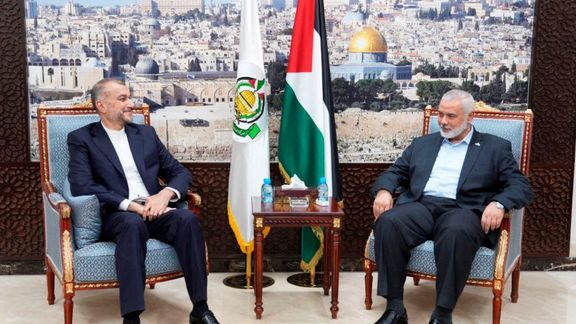
Qatar told the US it was open to reconsidering the presence of Hamas in Qatar once a crisis is resolved to secure the release of scores of hostages taken to Gaza.

Qatar told the US it was open to reconsidering the presence of Hamas in Qatar once a crisis is resolved to secure the release of scores of hostages taken to Gaza.
The understanding, first reported by the Washington Post, was reached at a meeting in Doha this month between US Secretary of State Antony Blinken and the emir of Qatar, Sheikh Tamim bin Hamad al-Thani, Reuters quoted a US official as saying.
There was no immediate response from Qatari officials to the news on Friday.
The tiny Gulf state, in coordination with the US, is leading mediation talks with Hamas and Israeli officials over the release of more than 200 hostages captured in the Palestinian group's October 7 cross-border terror attack.
On Wednesday, Qatar's prime minister said negotiations to secure the release of hostages held by Hamas were progressing and he was hopeful there would soon be a breakthrough.
Qatar's role and the Hamas presence in Qatar have faced criticism in Congress. A bipartisan group of 113 US lawmakers on Oct. 16 sent a letter to President Joe Biden asking him to put pressure on countries who support Hamas, including Qatar.
They asked that Qatar, a major non-NATO US ally, to expel Hamas leadership. "The country’s links to Hamas... are simply unacceptable," the letter said.
Hamas opened its political office in Doha in 2012 and several Hamas officials including the group's leader Ismail Haniyeh and former head Khaled Meshaal regularly spend time in Doha.
At an October 13 joint press conference with Qatari Prime Minister Sheikh Mohammed Bin Abdulrahman al-Thani, Blinken said there could be "no more business as usual" with Hamas, when asked if the US wanted Doha to shut Hamas' political office.
Reporting by Reuters

The US on Friday issued a second round of sanctions aimed at Palestinian militant group Hamas, including a Hamas official in Iran and members of Iran's IRGC.
The measures target additional assets in a Hamas investment portfolio and people facilitating sanctions evasion by Hamas-affiliated companies, the US Treasury Department said in a statement.
A Gaza-based entity that Treasury said has served as a conduit for illicit Iranian funds to Hamas and the Palestinian Islamic Jihad (PIJ) group was also targeted, the department said. Iran backs Hamas and other militant groups in the Middle East.
"We will not hesitate to take action to further degrade Hamas’s ability to commit horrific terrorist attacks by relentlessly targeting its financial activities and streams of funding," Deputy Treasury Secretary Wally Adeyemo wrote, adding the sanctions aimed "to deny Hamas the ability to exploit the international financial system."
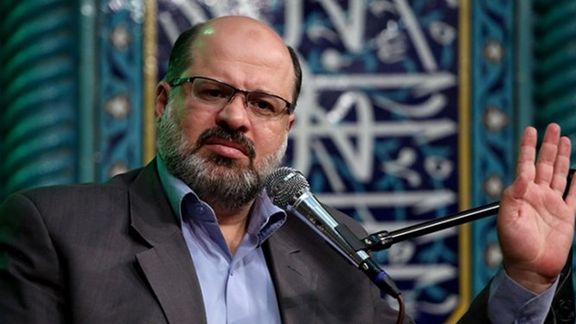
Adeyemo said some firms in the digital asset space were not doing enough to stop the flow of illicit finance.
Israel has bombed Hamas targets in the densely populated Gaza Strip following the October 7 terror attack that killed 1,400 people. Hamas took more than 200 hostages, some of them infants, in the assault.
The Hamas-controlled Gaza health ministry said on Thursday that 7,028 Palestinians had been killed in Israel's retaliatory air strikes. The figure cannot be independently verified.
Friday's action freezes any US assets of the targeted groups and generally bars Americans from dealing with them. Those that engage in certain transactions with them also risk being hit with sanctions.
The Treasury said it imposed sanctions on a Jordanian national who lives in the Iranian capital, Tehran, and who it said serves as the representative of Hamas in Iran, as well as Islamic Revolutionary Guard Corps Qods Force (IRGC-QF) officials who train and assist members of Hamas and other militant groups.
An Iran-based commander of the Saberin Special Forces Brigade of the IRGC Ground Force was also targeted. The US Treasury said the Saberin Brigade has deployed to Syria and has provided training to Hamas and members of the Lebanon-based Hezbollah.
Hundreds of Iranian or Iran-linked individuals and companies are already under US sanctions for their illicit activities in the country’s nuclear, missile and terror-related activities.
Sudan and Spain-based companies were also targeted under Friday's measures, as were Turkey-based shareholders of a company previously designated as part of the Hamas investment portfolio.
The United States has said that the Hamas portfolio of investments, estimated to be worth hundreds of millions of dollars, includes companies operating in Turkey, as well as Sudan, Algeria, the United Arab Emirates and elsewhere.
This month's violence has led to fears of a broader conflict in the Middle East.
The US military on Thursday carried out strikes against two facilities in eastern Syria used by Iran's Revolutionary Guards and groups it backs following a spate of attacks against U.S. forces in Iraq and Syria.
However, Iranian and Iraqi media reported on Friday that two US bases came under attack in Syria and Iraq following the US retaliatory strike.
With reporting by Reuters
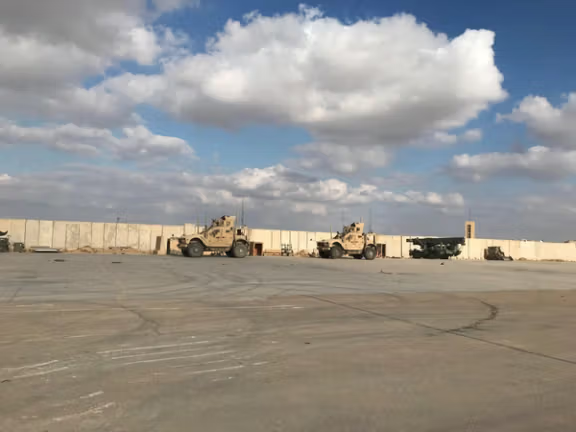
Iranian proxy militias launched two fresh attacks on US bases in Syria and Iraq on Friday, after US warplanes hit targets in Syria belonging to the Revolutionary Guard.
Tasnim news agency affiliated with the IRGC reported at midday local time that “six missiles were launched from the vicinity of Bu Kamal and al-Mayadeen” at the US base near the al-Omar oil fields. The website said in its headline that “American forces were caught by surprise.”
Later Tasnim also reported that the Ain al-Asad airbase in Iraq hosting US troops was hit by drones. Tasnim and Iraqi news websites reported that Islamic Jihad, a front of Iraqi Shiite forces loyal to Tehran, had issued a statement accepting responsibility.
There has been no confirmation by Iraq or the United States about the reported attacks.
If true, these fresh attacks would constitute a quick response by Iranian forces to a limited US retaliatory attack launched hours earlier at two reportedly unmanned weapons depots of the Revolutionary Guard near Bu Kamal.
The Islamic Resistance in Iraq claimed that its drones had achieved a “direct hit at the Ain- al-Assad airbase.
Tasnim said in its report about the attacks, “These attacks have taken place in response to the continuous crimes of the Israeli occupiers against the Palestinian people and the support of the United States for this regime.”
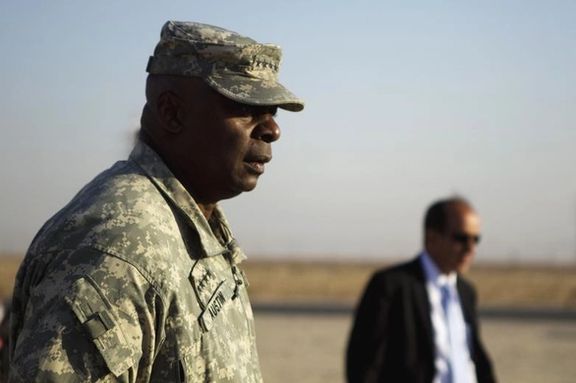
Iran’s armed proxy forces in Syria and Iraq have launched nearly 20 drone and rocket attacks against US bases in the two countries since the October 7 Hamas terror raid into Israel.
President Joe Biden and other US officials had been warning this week of retaliation if Iranian-affiliated forces continued targeting American forces. However, multiple and consecutive attacks remained unanswered until Thursday night.
Earlier, US Secretary of Defense Lloyd Austin had announced that US forces, at the direction of President Joe Biden, had launched strikes "targeting two facilities in eastern Syria used by the Revolutionary Guards and its affiliated forces."
Austin said the strikes were "a response to a series of ongoing attacks against U.S. personnel in Iraq and Syria by Iranian-backed forces that began on Oct. 17."
Iran had not attacked US bases in the region for nearly a year before the October 7th Hamas invasion. Tehran was holding secret talks with Washington to free billions of dollars of its frozen funds. The Biden administration agreed to release at least $8.7 billion blocked in South Korea and Iraq since June in exchange for five American hostages held by Iran and reportedly an agreement to deescalate tensions. However, the Hamas attack on Israel have led to the possibility of a serious conflict in the region.
Iran fully backs Hamas and has threatened the United States that if the attack on Gaza does not stop, it can engulf US interests.
Iran’s foreign minister told the United Nations on Thursday that US forces in the Middle East will not be spared if the Israeli offensive against Hamas continues.
Hossein Amir-Abdollahian reiterated the regime’s warning during an emergency meeting of the UN General Assembly on the Israel-Hamas conflict in New York. "I say frankly to the American statesmen, who are now managing the genocide in Palestine, that we do not welcome the expansion of the war in the region. But if the genocide in Gaza continues, they will not be spared from this fire.”
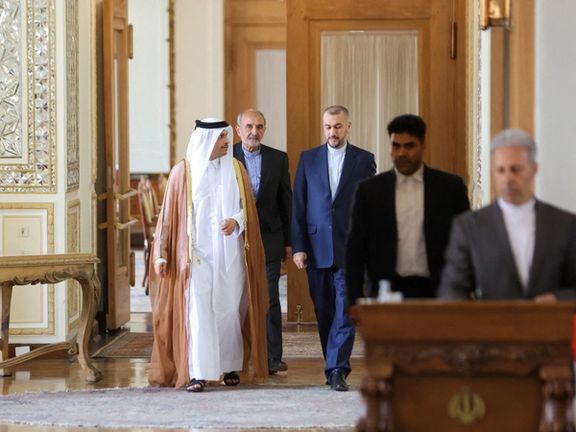
Israel’s Foreign Minister Eli Cohen issued a mild back-handed slap at Qatar’s pro-Hamas policy this week but his message was stymied by a compliment for Doha from Jerusalem’s National Security Adviser.
Cohen said on Tuesday at the UN, “Qatar which finances and harbors Hamas leaders could influence and enable the immediate and unconditional release of the hostages held by the terrorists. You, members of the international community, should demand from Qatar to do just that.”
A day later, National Security Adviser, Tzachi Hanegbi, wrote on X, formerly Twitter that “ I’m pleased to say that Qatar is becoming an essential party and stakeholder in the facilitation of humanitarian solutions. Qatar’s diplomatic efforts are crucial at this time.”
It is unclear if the Israeli government is working at cross purposes or whether Hanegbi is the good cop to Cohen’s bad cop, with a view toward influencing Qatari policy. Qatar’s regime has been unabashedly anti-Israel and pro-Hamas since the Sunni Islamist movement terrorist attack, stating the Jewish state is “solely responsible” for the war.
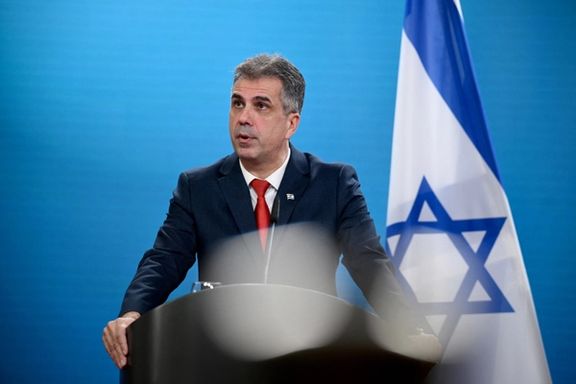
In February, Iran International reported that Cohen said the Islamic Republic of Iran is a “cancer” that finances Hamas and Hezbollah.
Qatar lodges US-terror-designated Hamas and courts the Iranian regime’s foreign minister. Qatar has funded or cultivated good relations with all of Israel’s major enemies from Hamas to Hezbollah to the IRGC.
For many experts on Qatar, which presents itself as global power broker, the Islamist Al Thani family members that rule over the tiny oil-rich Gulf country are the other wing of the same Hamas terrorist bird.
Yigal Carmon, the president and founder of the Middle East Media Research Institute (MEMRI), told Iran International, “Qatar is Hamas and Hamas is Qatar.”
Iran International was the first news organization to report in early September on Carmon’s prescient analysis that a significant terrorism attack would be launched against Israel in September or October.
According to Carmon, the way to secure the release of the over 200 hostages held by the Iran-backed terrorist movement Hamas is to “destabilize Qatar’s economy.”
Carmon, who served as the counter-terrorism adviser to two Israeli prime ministers, added “The elimination of Qatar as an economic base is absolutely necessary. It will happen through private cyber companies. Private companies are realizing that through pressure the hostages will be released. The Qatari economy is a house of cards and they will be destroyed.”
Along those lines, Rabbi Pini Dunner of the Beverly Hills Synagogue, and John Mirisch, a Beverly Hills City Councilmember, to put Qatar in an economic vice are gaining traction via an international campaign to boycott Qatar’s luxury Maybourne hotel in Beverly Hills and its hotel properties in London.
When asked about the international boycott campaign against Qatari-owned hotels, Paula Fitzherbert, global head of communications for the Maybourne in Beverly Hills, Claridge’s, The Connaught, The Berkeley, The Maybourne Riviera, and The Emory, told Iran International: “We won’t be issuing a comment.”
The former colonel in Israel’s military intelligence agency, Carmon, does not mince words. He has studied the supremely opulent Qatari nation for decades. He has also voiced sharp criticism of Israel’s government after Hamas invaded Israel on October 7 and slaughtered over 1,400 people, including many foreigners.
Carmon said” Tragically, our government funneled $1.5 billon” of Qatari funds to Hamas. “This double speak needs to stop. The way to stop is pressure, not begging Qatar.”
Qatar has pumped $1.5 billion into the Hamas-controlled Gaza strip over the last decade. The money, in theory, was designed to aid the population. Israel’s policy doctrine (advocated and implemented by Israeli prime minister Benjamin Netanyahu) that Hamas could be monetarily incentivized to not engage in mass adventurism against the Jewish state is now defunct.
Carmon warned in his 2018 MEMRI article titled “Is Gaza In Need Of Qatar's Aid?'" that Qatar’s aid to Hamas would backfire. He concluded his analysis with the following prediction: "In any event, when Saudi Arabia, the UAE, and Egypt see Israel supporting their enemy Qatar in its bid to expand Doha's influence in Hamas-ruled Gaza, four years after the war, when its economy has not only rebounded but is booming, they can only conclude that Israel is playing a double game – the destructive results of which are bound to come sooner or later."
The US and many Western governments continue to court Qatar and praise its diplomacy. After Qatar helped secure the freedom of two American hostages on October 22, US Secretary of State Antony Blinken told NBC that “I again want to thank the government of Qatar for playing a very important role in getting them out.”
Carmon said “America is protecting Qatar by having its base there.” Qatar hosts the massive Al Udeid Air Base. The MEMRI president argues that the base in Qatar is “endangering the American army” and noted that the Kingdom of Saudi Arabia and the United Arab Emirates offered to move the American military base to their nations.
The growing criticism of Qatar’s dangerous embrace and sponsorship of radical Islamist movements is entering mainstream political and media discourse. Prior to the arrival of Qatar’s emir, Sheikh Tamim bin Hamad Al-Thani, in Berlin just four days after Hamas’ massacre, the German foreign minister Annalena Baerbock urged Qatar to “clearly stand up to this most brutal terror.” The German Free Democratic Party, which is part of the traffic light federal governing coalition, called for Germany’s major gas deal with Qatar to “immediately be put on ice.”
Germany’s largest paper, Bild, headlined its article on the emir’s visit: “Scholz welcomes the top sponsor of terror.” Olaf Scholz is the German Chancellor. The Bild headline would have been largely unimaginable before October 7.
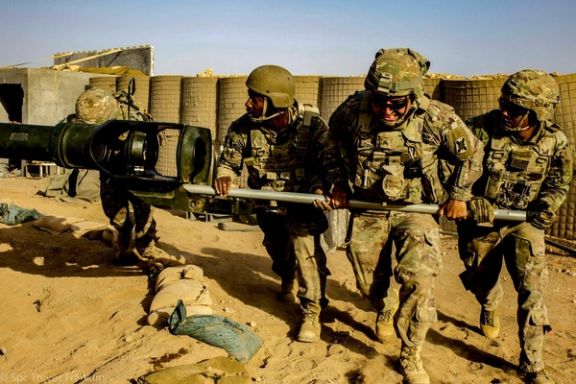
IRGC media report a fresh attack on a US base in Deir Ezzor in Syria on Friday, after US warplanes hit two targets in the region belonging to the Revolutionary Guard.
Tasnim news agency affiliated with the IRGC reported at midday local time that “six missiles launched from the vicinity of Bu Kamal and al-Mayadeen” at the US base near the al-Omar oil fields.
If true, this would constitute a quick response by Iranian forces to a limited US retaliatory attack launched hours earlier at tow reportedly unmanned weapons depots of the Revolutionary Guard near Bu Kamal.
Iran’s armed proxy forces in Syria and Iraq have launched nearly 20 drone and rocket attacks against US bases in the two countries since the October 7 Hamas terror raid into Israel.
President Joe Biden and other US officials had warned of retaliation if Iranian-affiliated forces continued targeting American forces.
Iran had not attacked US bases in the region for nearly a year before the October 7th Hamas invasion. Tehran was holding secret talks with Washington to free billions of dollars of its frozen funds. The Biden administration agreed to release at least $8.7 billion blocked in South Korea and Iraq since June in exchange for five American hostages held by Iran and reportedly an agreement to deescalate tensions. However, the Hamas attack on Israel have led to the possibility of a serious conflict in the region.
Iran fully backs Hamas and has threatened the United States that if the attack on Gaza does not stop, it can engulf US interests.
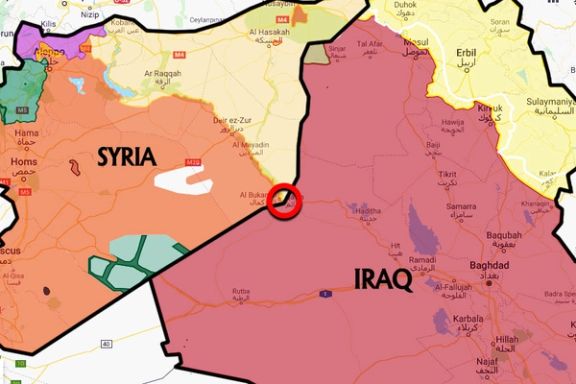
Two US fighter jets struck weapons and ammunition facilities in Syria on Friday in retaliation for attacks on US forces by Iranian-backed militia in the past week.
US President Joe Biden ordered strikes on the two facilities used by Iran's Revolutionary Guard Corps and its militia groups, the Pentagon said, warning the US will take additional measures if attacks by Iran's proxies continue.
US and coalition troops have been attacked at least 19 times in Iraq and in Syria by Iran-backed forces in the past week. Hamas, Islamic Jihad and Lebanon's Hezbollah are all backed by Tehran.
Iranian Foreign Minister Hossein Amir-Abdollahian said at the United Nations on Thursday that if Israel's offensive against Hamas did not stop, the United States will "not be spared from this fire".
Several former US officials, Republican senators and others were criticizing the Biden administration for not responding to the attacks, and for permitting Iran’s foreign minister to come to New York, while his government’s role in the October 7 attack by Hamas was clear.
The US air strikes took place at roughly 4:30 a.m. on Friday (0130 GMT) near Abu Kamal, a Syrian town on the border with Iraq, and were carried out by two F-16 fighter jets using precision munitions, a US defense official said.
"These precision self-defense strikes are a response to a series of ongoing and mostly unsuccessful attacks against U.S. personnel in Iraq and Syria by Iranian-backed militia groups that began on October 17," US Defense Secretary Lloyd Austin said in a statement.
"These Iranian-backed attacks against US forces are unacceptable and must stop," Austin said, directly pointing fingers at the Iranian regime. However, the US response came after days of Iranian-backed attacks that injured scores of US troops. The delay, some argued, was emboldening Tehran.
Biden has sent a rare message to Iranian Supreme Leader Ayatollah Ali Khamenei warning Tehran against targeting U.S. personnel in the Middle East, the White House said earlier on Thursday.
"What we want is for Iran to take very specific actions, to direct its militias and proxies to stand down," a senior US defense official said. The United States did not coordinate the air strikes with Israel, the official added.
The United States has sent warships and fighter aircraft to the region over the last three weeks. On Thursday the Pentagon said about 900 more US troops have arrived in the Middle East or are heading there to bolster air defenses for U.S. personnel.
While the situation in the Middle East remains fluid, the U.S. has taken steps to deter further escalations, deploying two aircraft carriers, additional fighter squadrons, and air defense systems in the region.
In his statement Secretary Austin warned: “if attacks by Iran’s proxies against U.S. forces continue, we will not hesitate to take further necessary measures to protect our people.”
It’s not clear if any Iranians were present at the sites.
Austin has emphasized that the strikes in eastern Syria are "separate and distinct from the ongoing conflict between Israel and Hamas” and do not constitute a shift in the Biden administration’s approach. It is hard, however, if not impossible, to not see the bombing of facilities in Syria against that backdrop.
Israel said on Friday military raids into Gaza were preparing "the next stage of the operation", amid fears that a ground invasion of the Palestinian enclave could spark a wider Middle East conflict.
According to Gaza health authorities, at least 7,000 have been killed in Israeli airstrikes in the 20 days Since the Hamas attack on Israel (which killed 1400), while this figure cannot be independently verified. The regime in Iran has boasted many times about that operation and its support for Hamas.
The Islamic Republic supports several militant groups in the region, most notably Hezbollah in Lebanon. The Biden administration is weary of an all-out war involving these groups, which could be costly, economically and politically. But the continued attack on American forces seems to have taken the President over the decision edge.
Some observers have pointed out on social media that the Biden administration has had far fewer attacks on Iran-affiliated targets than the other way round.
With reporting by Reuters